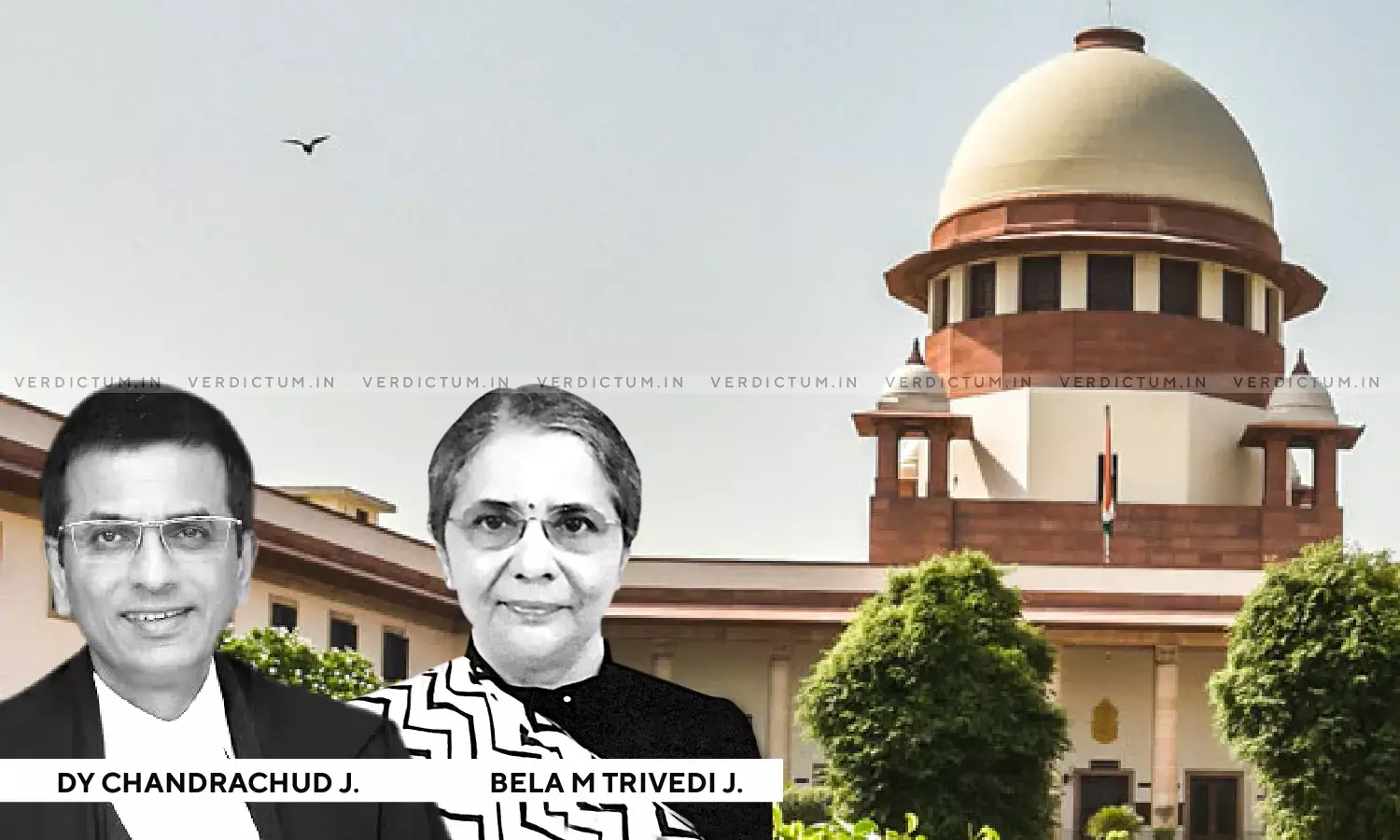Extra-Judicial Confession Weak Kind Of Evidence Unless Fully Corroborated By Other Evidence Of Clinching Nature - SC

The Supreme Court Bench comprising of Justice DY Chandrachud and Justice Bela M. Trivedi has ruled that extra judicial confession made by the co-accused is a weak kind of evidence and could be admitted in evidence only as a corroborative piece of evidence supported by other evidence of clinching nature.
The Court in this context held -
"Extra judicial confession is a weak kind of evidence and unless it inspires confidence or is fully corroborated by some other evidence of clinching nature, ordinarily conviction for the offence of murder should not be made only on the evidence of extra judicial confession."
In this case, an appeal was filed by the appellant-accused Chandrapal where he, along with 3 other accused persons namely- Bhagirathi Kumhar, Mangal Singh, and Videshi, was found guilty of the offences by the trial court under section 302 and 201 read with section 34 of Indian Penal Code. The High Court set aside the conviction of Bhagirathi Kumhar, Mangal Singh and Videshi for the offence under section 302 read with section 34 of IPC but confirmed their conviction for the offence under section 201 read with section 34 of IPC. However the appeal made by Chandrapal was dismissed by the High Court.
Aggrieved, the appellant-accused approached the Supreme Court.
Advocate Akshat Shrivastava appeared for accused-appellant Chandrapal whereas Advocate Sourav Roy appeared for respondent state.
The Supreme Court held that conclusions of guilt arrived at must be sure conclusions and must not be based on vague conjectures. And to that end held "the entire chain of circumstances on which the conclusion of guilt is to be drawn, should be fully established and should not leave any reasonable ground for the conclusion consistent with the innocence of the accused."
The Court termed extra judicial confession as a weak kind of evidence provided it is fully corroborated by some other evidence of clinching nature. "In absence of any substantive evidence against the accused, the extra judicial confession allegedly made by the co-accused loses its significance and there cannot be any conviction based on such extra judicial confession of the co-accused." the Court held.
The Court while delivering this judgment placed reliance on a catena of cases viz. Jagroop Singh Vs. State of Punjab, S.K. Yusuf Vs. State of West Bengal and Pancho Vs. State of Haryana, where this principle followed was that the extra judicial confession is a weak evidence by itself and it has to be examined by the Court with greater care and caution.
The Court further held that if such weak piece of evidence of the co-accused Videshi, in this case, was not duly proved or found trustworthy for holding the other co-accused guilty of committing murder of the deceased, the High Court could not have used the said evidence against the present appellant for the purpose of holding him guilty for the alleged offence.
On the contention regarding the last seen theory the Court held that to convict an accused under Section 302 of IPC, the prosecution must prove the factum of a homicidal death and if the evidence of prosecution falls short of proof of homicidal death of the deceased, and if the possibility of suicidal death could not be ruled out, the appellant-accused could not have been convicted merely on the basis of the theory of "Last seen together".
Accordingly the Court allowed the appeal and acquitted appellant-accused Chandrapal from the charges levelled against him.
Click here to read/download the Judgment

